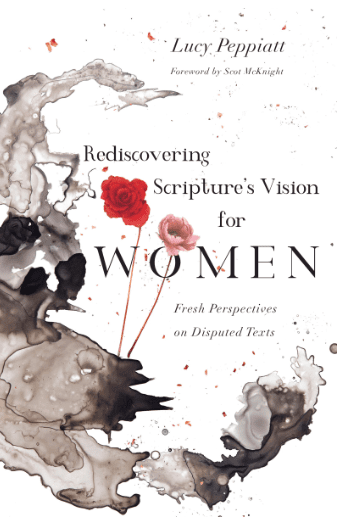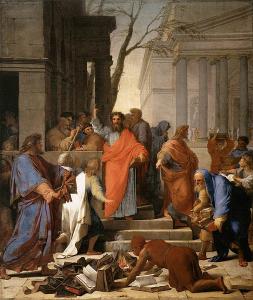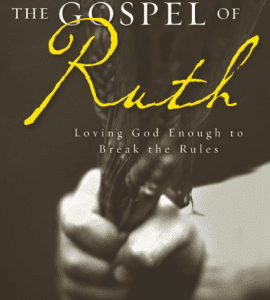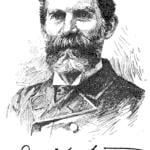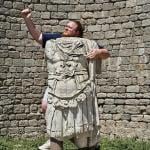I’ve had two stints as a professor in a seminary, schools designed to educate those in the church and especially those called into its various ministries. Two decades of my teaching career. My first stint involved a massing learning curve about pastors while the second stint, at Northern Seminary, is (what I think is) my sweet spot. I love teaching students who love the church.
While we have plenty of students who are not going to be senior or teaching or lead pastors, the pastoral calling transcends those adjectives. So, in my classes we talk lots about churches and pastors and the pastoral calling.
This all led to my book Pastor Paul: Nurturing a Culture of Christoformity in the Church. Which made my ears and eyes sensitive to Willow Creek’s summary description of what they are looking for in a pastor.
God’s design for you and for me, for all Christians, for the whole church is expressed with living brilliance in Romans 8:29-30:
For those whom he foreknew he also predestined to be conformed to the image of his Son, in order that he might be the firstborn within a large family. And those whom he predestined he also called; and those whom he called he also justified; and those whom he justified he also glorified (NRSV).
The design of God for all of us is to be “co-morphed” into his Son’s very image. I call this Christoformity, a slightly more accurate expression than “Christlikeness.” Conformity to Christ, co-morphing into Christ is Christoformity.
If this is God’s design for us, then this is absolutely the design of the pastoral calling. Pastors first and foremost are called to pastor people toward Christoformity. This theme shapes all eight chapters in Pastor Paul. I develop these themes: friendship, siblings, generosity, storytellers, witness, world subversion, and wisdom.
All as instances of the theme of pastors as culture makers, as those who nurture a culture of Christoformity.
So, two big ideas: pastors pastor people, and pastors pastor people by nurturing Christoformity.
There is not the slightest hint that Willow Creek’s pastor job description comprehends this as the central shaping vision for the pastor they want. Besides being the one and only pastoral search description I have ever seen that does not state that its pastor is to match up favorably with the elder/bishop list of the 1 Timothy 3:1-7 (or Titus 1:7-9) and besides not having anything along the line of the pastoral ends/goals, the job description focuses on the very culture formed under Bill Hybels. That is, a culture in which the pastor is an entrepreneurial leader who expands the Willow Creek brand.
All of Willow Creek’s elders need to stop right now and read Eugene Peterson’s The Pastor: A Memoir. Over and over in his long career of pastoring and teaching pastors, Peterson warned against what Willow Creek seems not to have heard. The church is not a business and pastors are not CEOs, not business leaders and not entrepreneurs, they are pastors-of-people called to nurture spiritual formation in the “same direction” (or Christoformity).
At the bottom of this post the job description is posted.
Here’s a word cloud of the terms Willow Creek uses in its job description. Word Clouds aren’t everything but they can be telling. This one is. I have a few more thoughts below the Word Cloud and then the actual advertisement of the job description:

Some expressions in the job description are praiseworthy:
- Values and champions women in leadership roles at all levels of the organization, in both executive and ministry capacities.
- Has likely worked in a nonhomogeneous environment and embraces a diverse culture.
- Can balance being accessible, while also exhibiting healthy personal boundaries.
- Is known to be a humble servant leader. This shows up in learning, asking questions, and relying on the strengths and gifts of others.
- Displays a high level of emotional and relational intelligence.
- While very grace-filled, holds to a traditional view on marriage (between one man and one woman).
- Has likely weathered a season of great pain and loss which has helped humble, refine, and shape him or her into a better leader and pastor.
Now some observations about the job description:
First, no Jesus, no Christ, no Bible, no gospel — that is, in the main words. They are buried into tiny words or they are not there. Amazing. Jesus appears twice. Christ once. God four times. Bible not at all. Gospel not at all. What’s a pastor job description without these terms prominent?
Second, the focus is “Willow” as in “We are Willow Creek.” Also Barrington, Chicago, and South (as in South Barrington). This is an advertisement seeking someone who can carry on the Willow Creek brand.
Third, the biggest two words of substance in the job description’s Word Cloud are “pastor” and “leadership.” Leadership is hardly a significant term in the NT for the calling of pastors. Both leading and pastoring are functions performed by various other people found in terms in the NT like elder, bishop, deacon, apostle, prophet, teaching, evangelist. Still, I like the term “pastor” but I get nervous about “leader” as it took the church world by storm in the wake of pastors focusing on the leadership models in the business world. (In the 1980s, I think.) This led rather abruptly to the sudden appearance of an adjective “servant” as in “servant leader” to correct the business model. The term “leader” from the business world, in other words, was not good enough: the pastor is a “servant” leader. That term “servant” appears once in Willow Creek’s job description. Eugene Peterson’s entire complaint about pastors in the last quarter of the 20th Century was that the business leader model had taken over. He has been ignored in this job description’s emphases.
Fourth, Willow Creek wants a leader who is both theologically grounded and (or but) that person does not need a theological degree. That’s a very very rare combination. So rare that this Willow Creek job description is stomping recklessly on thin ice. Two decades in a seminary have shown to me that we seminary professors are not naive about what can and what cannot be accomplished in a seminary. Rare is the seminary professor who thinks we can turn people into flourishing pastors. I’ve not met that “rare” one. Seminaries do not turn people into pastors but we can enhance the gifts of the pastor. Pastors need a theological foundation and the surest way to get it is through theological education.
The absence of theological terms in that Word Cloud, along with the desire for “theologically grounded without needing a theological education,” conform to one another. That is, those who devalue theology don’t think theology is needed. (They’re wrong.) What Willow Creek surely needs, following on the heels of a pastor who was not theologically educated but who did get help from some theological mentors, is someone who has a seminary degree (preferably an MDiv). Such a pastor can give theological shape to the church and re-form Willow Creek into a theologically-sound infrastructure. What is lacking at Willow Creek (theological depth) is why the elders can form a job description without it (theological depth).
What’s a pastor? is the question I constantly have as I read this job description.
I see some things that are cringe-worthy: “motivate and inspire high-capacity men and women to use their gifts to further the vision.” What about the 95% who aren’t high-capacity? This is so Willow-speak, so Hybels-speak. And, I don’t know what to make of this one: “Has life experience in connecting with professionals, entrepreneurs, and people who have outwardly made it in life but are seeking significance.” I’m glad it is followed by a “heart for the under-resourced,” something Willow Creek has done well for years.
The elders could benefit from revisiting this job description.
Advertisement.
Denomination: Nondenominational
Weekly Attendance: 21,000 at eight locations
Neighborhood: South Barrington, Greater Chicagoland, Illinois
The role: Leading from the South Barrington campus, the Senior Pastor will wear the dual hats of pastor (able to discern God’s direction for the congregation) as well as CEO (with organizational leadership skills to lead a complex organization with more than 350 employees). This leader will bring the right balance of preserving what is, but also will fan the flames of Willow’s DNA of boldness, innovation, and creativity.
Meet Willow Creek Community Church:
Willow Creek Community Church is a local church with a global impact. One church in eight locations; more than 21,000 people gather every weekend across the Chicago area. Each Willow Creek church offers the same high-caliber teaching, experienced live at South Barrington and via high-definition video stream at regional locations. In addition to live worship, each site offers a unique assortment of classes and workshops, robust programs for children and students, and plenty of volunteer opportunities where members and guests can meet people and make a difference in their own neighborhood.
Thousands of local churches across the globe can trace their beginnings to an inspiring vision they received while attending a leadership conference, event, or service at Willow Creek. Although the past year has seen some turmoil for the church, the leadership has not lost its heart for reaching those far from God through relevant, biblical teaching and weekend services, developing impactful teams, and leading compassion and justice initiatives that change the community both in Chicago and around the world.
Casa de Luz, Willow’s Spanish-language congregation, meets at the South Barrington campus and serves their Spanish-speaking community. Each regional church— irrespective of its location or language—is both an extension of Willow Creek and a fully functioning local church with its own staff and ministries to meet the needs of its local community. Although most weekends are live-streamed, each regional Lead Pastor has the opportunity to teach live eight to ten times per year.
The central campus of Willow Creek in South Barrington and its regional campuses, governed by a unified body of elders (installed in January 2019), are united by more than just the “Willow Creek” in their names. Each shares a single-minded focus: to reach people who are far from God and to help them become fully devoted followers of Jesus Christ.
After our recent visit to Willow, we are convinced she has bright days ahead. This is a fantastic opportunity for a God-centered leader to join the team to continue the rebuilding which has already begun.
About the Senior Pastor:
The Senior Pastor will lead and serve the Willow Creek Community Church at all its locations to become a thriving, healthy family of local churches. This man or woman will provide overall leadership and vision for the entire network of regional campuses. They will ensure Willow Creek’s vision and strategy is clear and understood across all locations, that the right leaders are leading and serving the campuses, and that Willow Creek is positioned for strength well into the future.
The Senior Pastor will have the ability to dream and cast vision for the next season of congregational life and community impact. The ideal candidate will demonstrate spiritual leadership, an authentic walk with Jesus, and a proven commitment to balancing the rhythms of work and life. He or she will be a proven “leader of leaders” who can motivate and inspire high-capacity men and women to use their gifts to further the vision.
The Senior Pastor will accomplish the following goals:
In Spiritual Leadership:
- Although not expected to deliver the message every weekend, when teaching, communicate biblical truth in an inspiring fashion that helps reach irreligious people and help people at all levels of their spiritual journey to become fully devoted followers of Jesus.
- Exemplify a life of walking closely with Jesus, including strong spiritual leadership in the home.
- Can balance leadership and vision along with accountability and submission while working with a board of lay elders. The Senior Pastor will meet with the elders regularly and will have full voice into all matters, but will not be a voting member of the elders.
- Help bring healing to a staff and congregation that has experienced significant loss.
In Visionary/Organizational Leadership:
- Bring strength to Willow’s network of churches through a unified vision, while continuing to provide a great deal of autonomy that has allowed the regional sites to attract top talent and thrive as self-supported congregations.
- Focus initially on strengthening Willow as a local church. Once strength is restored and Willow is healthy and thriving once again, continue Willow’s legacy of high-impact ministry outside the walls in the Chicago area and around the world.
- Lead the executive team to bring unity and clarity to all programs and ministries, so that all of Willow is pulling for the same mission and vision.
- Work with the elders to clarify the relationship with Global Leadership Network (formerly WCA). Note: GLN (WCA) is no longer under the authority of the elders but still occupying space in the building.
- Focus on building an executive team. Initial hires are likely to be a Teaching Pastor, as well as a South Barrington Lead Pastor to focus on the broadcast campus and largest staff.
- Put emphasis on leadership development, individually modeling this at the highest levels. Equally, place a focus on building processes and systems so that managers and team leaders across Willow are being developed.
- Provide leadership to help Willow discover her target audience. In the past, it was “unchurched Harry and Mary.” This needs to be redefined for 2020 and beyond.
What you bring:
Education
Willow Creek values candidates who are life-long learners. Proven leadership experience is important, and this individual should be theologically grounded, but a formal theological classroom education is not a requirement for selection.
Experience and Skills
- Has a proven communication gift with the ability to effectively deliver talks with a large audience in a room that seats 7,500, while simultaneously engaging with people who are viewing from other locations via high-definition video.
- Has the ability to deliver messages that reach the seeker, as well as provide depth to help believers grow in their faith.
- We have a strong preference toward leaders with multi-site or complex organizational experience.
- Has life experience in connecting with professionals, entrepreneurs, and people who have outwardly made it in life but are seeking significance.
- Has a heart for those who are under-resourced and history of fighting poverty and injustice.
- Has a track record of developing and equipping leaders.
- When you look in the rearview mirror of this leaders life, you see growing organizations.
Personal Characteristics
- Values and champions women in leadership roles at all levels of the organization, in both executive and ministry capacities.
- Has likely worked in a nonhomogeneous environment and embraces a diverse culture.
- Can balance being accessible, while also exhibiting healthy personal boundaries.
- Is known to be a humble servant leader. This shows up in learning, asking questions, and relying on the strengths and gifts of others.
- Displays a high level of emotional and relational intelligence.
- While very grace-filled, holds to a traditional view on marriage (between one man and one woman).
- Has likely weathered a season of great pain and loss which has helped humble, refine, and shape him or her into a better leader and pastor.
What it’s like to live in South Barrington, Greater Chicagoland, area:
Each Willow Creek campus is located in the greater Chicagoland area. Chicago is the third most populous city in the United States, after New York City and Los Angeles, with 2.7 million residents in the city, and 9.5 million in the metropolitan area. In addition to its renowned upscale establishments and restaurant districts, the city’s unique location on Lake Michigan, its rich architectural heritage, its lively theater, arts, and comedy community, and its vibrant nightlife attracts residents and tourists alike. Chicago was recently named the fourth-most “walkable” city of the 50 largest cities in the United States (2011, Walk Score).
Chicago has numerous nicknames, including Chi-town, Windy City, and Second City. The city is a center for business and finance and is considered one of the world’s top global financial centers. Located near a portage between the Great Lakes and the Mississippi River watershed, Chicago has remained a major hub for industry, education, telecommunications, and infrastructure since its founding, with O’Hare International Airport being the second busiest airport in the world in terms of traffic movements.
Chicago offers a large array of cultural, historical, sporting, and entertainment focal points that bring thousands of tourists to the area yearly. Grant Park hosts the annual Taste of Chicago festival, while also featuring Millennium Park, home to the iconic Cloud Gate Structure, Buckingham Fountain, and the Art Institute of Chicago. The city is home to numerous major-league sports teams, world-class museums, and the Magnificent Mile shopping district, all along the beautiful Lake Michigan shoreline, creating an atmosphere not soon to be forgotten.
Willow’s broadcast campus is located in South Barrington, a suburb of Chicago just about an hour away, is consistently ranked one of the best places to live in Illinois. Living in South Barrington offers residents a suburban feel and most residents own their homes. In South Barrington, there are a lot of parks and great green spaces to enjoy, as well as proximity to the greater city of Chicago while still feeling like a “small town,” with just over 4,000 residents. The public schools in South Barrington are highly rated.
Think you’re a great fit for this role? Become a candidate here.
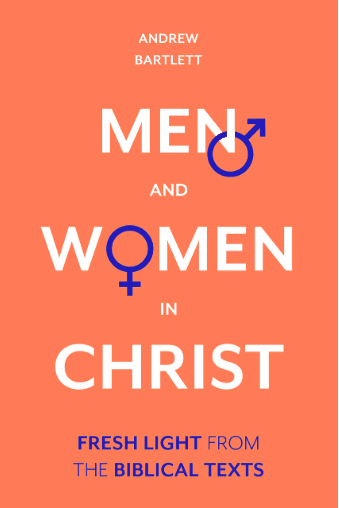 Andrew Bartlett, in his new book Men and Women in Christ (MWiC), asks if Paul affirms or denies hierarchies in Christian marriage?
Andrew Bartlett, in his new book Men and Women in Christ (MWiC), asks if Paul affirms or denies hierarchies in Christian marriage?




